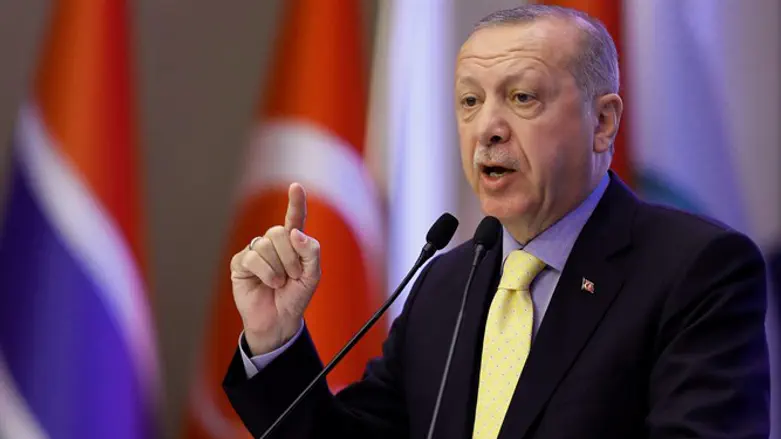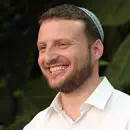
Ynet reported that Turkish President Recep Tayyip Erdogan arrived in Moscow today (Thursday) for talks with his Russian counterpart Vladimir Putin. Both leaders hope to reach a ceasefire in the fighting in the Idlib province of Syria, one of the last remaining rebel strongholds in the war-torn nation. Nearly 60 Turkish soldiers were killed in the month of Frebruary. While the Russian head of state has expressed regret for their deaths, experts believe he will insist on conveying a message to Ankara: Moscow will not stand in Assad's way of re-conquering the entirety of his country.
At the beginning of their meeting, Putin expressed regret over the deaths of Turkish troops in Idlib, claiming Syria was not aware of the location of the Turkish troops when it attacked, adding that he hoped the talks with Erdogan would prevent a similar case.
As you will recall, a similar attack was blamed for Turkey's launch of a military campaign against Assad's forces. Erdogan is also alleged to have orchestrated an attempt by migrants and refugees to cross the border with Greece en-route to destinations in Western Europe in an attempt to pressure the EU to support its operations in Syria.
At the Kremlin meeting, Putin stated that the situation in Idlib had become so tense that both leaders were forced to meet and discuss ways to find a solution. Erdogan told Putin he was hopeful such a solution would be reached and maintained that Moscow-Ankara relations were thriving despite the crisis, noting that his goal was to strengthen them even further.
Ankara has stuck to its demands that Assad's forces, aided by Russian aerial cover, halt the operation against Islamist terrorists holed up in Idlib and withdraw to the lines agreed upon in the 2018 agreement mediated by Russia.
Turkey has maintained supports for terrorist groups in Idlib, but its main goal now is to prevent a new influx of Syrian refugees. More than 3.5 million displaced persons have already infiltrated the country but since last December when Assad's operation to overtake Idlib in northwestern Syria was renewed, nearly a million more have made their way towards the Turkish border.
Fighting continues despite talks
Kremlin spokesman Dmitry Peskov said both leaders will discuss the origins of the ongoing crisis and take "joint steps" to resolve it. Experts believe Putin is likely to make it clear to his Turkish counterpart that Russia will not oppose Assad's forces from re-conquering Idlib, thus gaining full control of his territory for the first time since the outbreak of the 2011 civil war.
Will a cease-fire hold?
Western diplomats have questioned the effectiveness of a ceasefire despite a possible breakthrough in the Moscow talks. "They may announce a cease-fire after the Putin-Erdogan summit, but it will only be a show," a Western diplomat was quoted as saying.
The Kremlin sees Russian activity in Syria as a very important achievement for Putin's foreign policy. Russia has set up military bases in the country and established itself as a major player in the region. Alongside Iran and Hezbollah, it allowed Assad to gain the upper hand in the civil war in Syria and regain most of the territory he had lost to Islamist terrorists including ISIS.
"Victory in Syria has become a matter of prestige for Russia - and for Putin personally," said Yuri Barmin, a Middle East expert from the Russian Council on International Affairs. Russia and Turkey have long supported opposing sides of the fighting in Syria, but have tried to avoid direct conflict. In recent days, tensions between the two have increased, and they have blamed each other for the crisis in Idlib.
Turkey has accused Moscow of failing to implement the 2018 Sochi agreement, according to which the rebel stronghold in Idlib would not come under attack, and 12 Turkish observation posts would be allowed be constructed in Syrian territory. Moscow, for its part, has claimed that Turkey was violating the same agreement by supporting "illegal armed groups". The Russians have also alleged that Turkish forces are aiding "terrorists", which are a legitimate target for military strikes.

